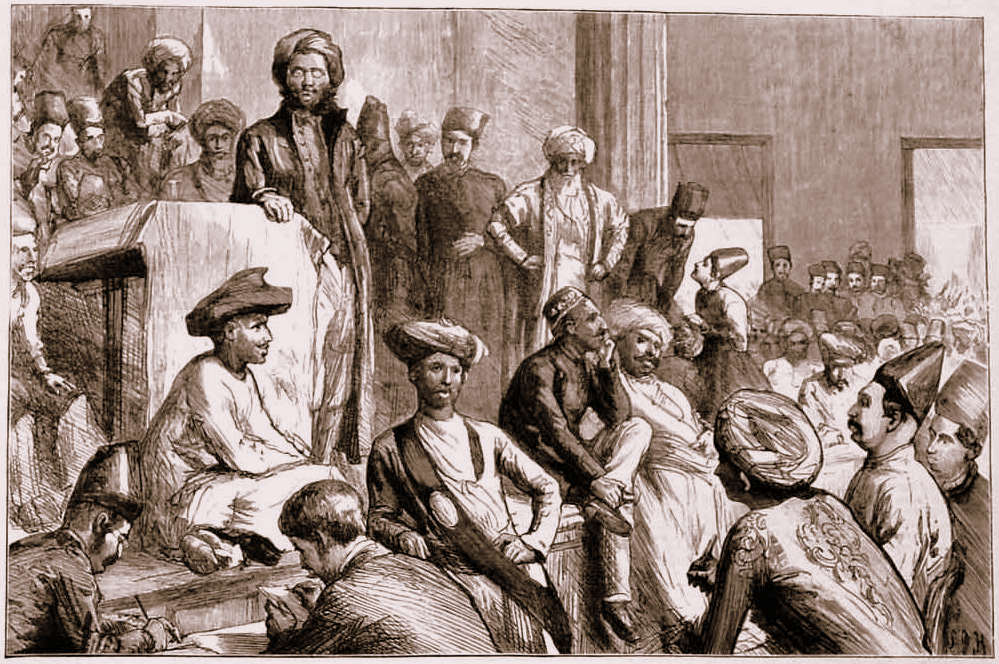The Ilbert Bill Controversy: A Struggle for Judicial Equality in Colonial India
History Indian HistoryPosted by NewAdmin on 2025-01-31 08:47:39 |
Share: Facebook | Twitter | Whatsapp | Linkedin Visits: 27

The Ilbert Bill, proposed in 1883 by Lord Ripon, the then Viceroy of India, was a significant yet highly controversial legal reform during British rule. The bill was drafted by Sir Courtenay Ilbert, the Law Member of the Viceroy’s Council, and aimed to address racial discrimination in the Indian judiciary by granting Indian judges the authority to try European offenders in criminal cases.
Before the Ilbert Bill, British and European citizens in India were tried exclusively by British judges, even in regions where Indian judges held high judicial positions. This was a clear racial bias in the legal system, as Indian judges were deemed competent to try Indian defendants but were denied the right to administer justice over Europeans. Lord Ripon, a liberal British statesman, sought to remove this racial inequality and promote judicial fairness by allowing qualified Indian judges to preside over cases involving European defendants.
The proposal sparked outrage among the European community in India, particularly British officials, planters, and businessmen. They strongly opposed the idea of being tried by Indian judges, whom they viewed as inferior. The opposition led to widespread protests, racist propaganda, and intense lobbying against the bill. Many Europeans argued that Indian judges lacked impartiality and legal competence, though these claims were largely rooted in racial prejudice rather than fact. The British press in India launched racist attacks, with some newspapers even suggesting that European women might not be safe if Indian judges were given such authority.
Faced with mounting pressure, the British government eventually introduced a compromise version of the Ilbert Bill in 1884. The modified version stated that European defendants could still demand a jury trial, with at least half of the jurors being European. This change weakened the original intent of the bill but managed to partially address the issue of judicial discrimination.
Although the Ilbert Bill did not achieve full judicial equality, it was a significant step in challenging British racial policies in India. It exposed the deep-rooted racism within the colonial administration and strengthened the growing demand for Indian self-governance. The controversy surrounding the bill also helped to unite Indian nationalists, contributing to the rise of the Indian National Congress (INC) in 1885, which would later play a key role in the independence movement.
Search
Categories
Recent News
- Chelsea's Cup Dreams Shattered: Fofana's Emotional Exit
- Kante's Turkish Twist: Fenerbahce Seal the Deal
- Kerala Defies Central Advice on Rice Incentives
- Naked Chaos at Bangalore's Elite Club: A Shocking Incident
- Solar Fury: ISRO's Vigil Against Radio Blackout
- Indian Markets: AI Jitters Halt Rally, IT Stocks Take a Hit
- SEBI's Reformative Push for Market Integrity
- South Africa's Cricket Renaissance: A Squad with Depth
Popular News
- Navigating IPO Market Dynamics Amid Volatility and Regulatory Changes
- Massive Worldwide Microsoft Outage Disrupts Multiple Sectors
- Panjapur Bus Stand to Reshape TNSTC Routes
- తెలుగుదేశం పార్టీ - పేదరికాన్ని నిర్మూలించడంలో వాగ్దానం
- Universities Embrace Remote Learning Technologies Amidst Ongoing Pandemic